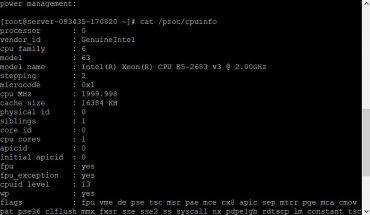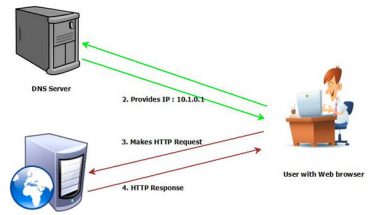 Service and support play a key role in web hosting security. For all technical measures are of no use if in the event of an emergency no help from the host is to be expected. For this reason, ask your provider which services the standard support methods are, what is covered in the hosting plan, and which services cost. Help around the clock should actually be a standard feature, but that isn’t always the case: Some hosting providers do not offer 24/7 support or demand high fees for assistance outside of business hours. You find this most in enterprise-level services. In a service-level agreement (SLA), some hosts define their support guidelines precisely.
Service and support play a key role in web hosting security. For all technical measures are of no use if in the event of an emergency no help from the host is to be expected. For this reason, ask your provider which services the standard support methods are, what is covered in the hosting plan, and which services cost. Help around the clock should actually be a standard feature, but that isn’t always the case: Some hosting providers do not offer 24/7 support or demand high fees for assistance outside of business hours. You find this most in enterprise-level services. In a service-level agreement (SLA), some hosts define their support guidelines precisely.
Cloud hosting and data protection
In cloud hosting, a distinction is made between public clouds, private clouds and hybrid clouds. When it comes to safety, this distinction is particularly important.
Public Clouds correspond to the basic idea of cloud computing: The hosting customers share the resources offered by the provider. The required hosting services can be changed at any time, in the course of operation. This resource adjustment is even done automatically. The customer pays only for services actually used. As progressive as this may be, the security situation is so confusing: the “sites” of Public Clouds may be distributed anonymously all over the world. Users can not locate their data spatially. You may not know in which countries, in which data centers, on which servers, and with which software their data are stored and processed. According to the philosophy of cloud computing, the customer probably does not know whether the host is outsourcing services. Thus, it is also conceivable that providers operate a trade with their resources.
More fail-safe in the cloud
If you need individual hosting solutions for complex Internet projects, you may be interested in cluster hosting – a hosting variant that combines several real servers or instances in the cloud. Rather than increasing the performance of a server or a cloud instance and making full use of the system, it is often more effective to combine multiple servers or instances into one cluster. This creates a great advantage for security: The cluster elements secure each other. If a system malfunctions, a new one jumps in, while the problems can be resolved without any downtime.




